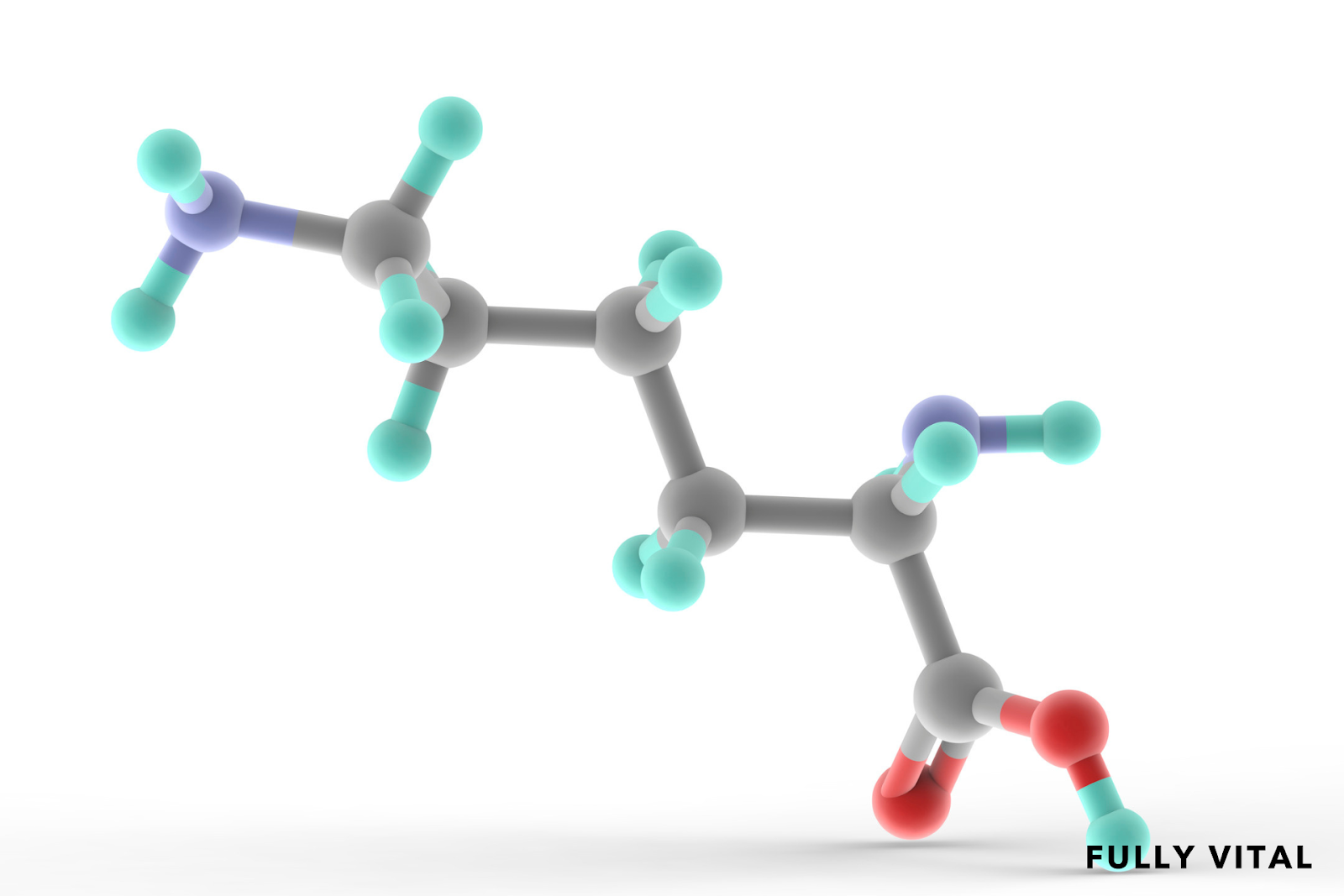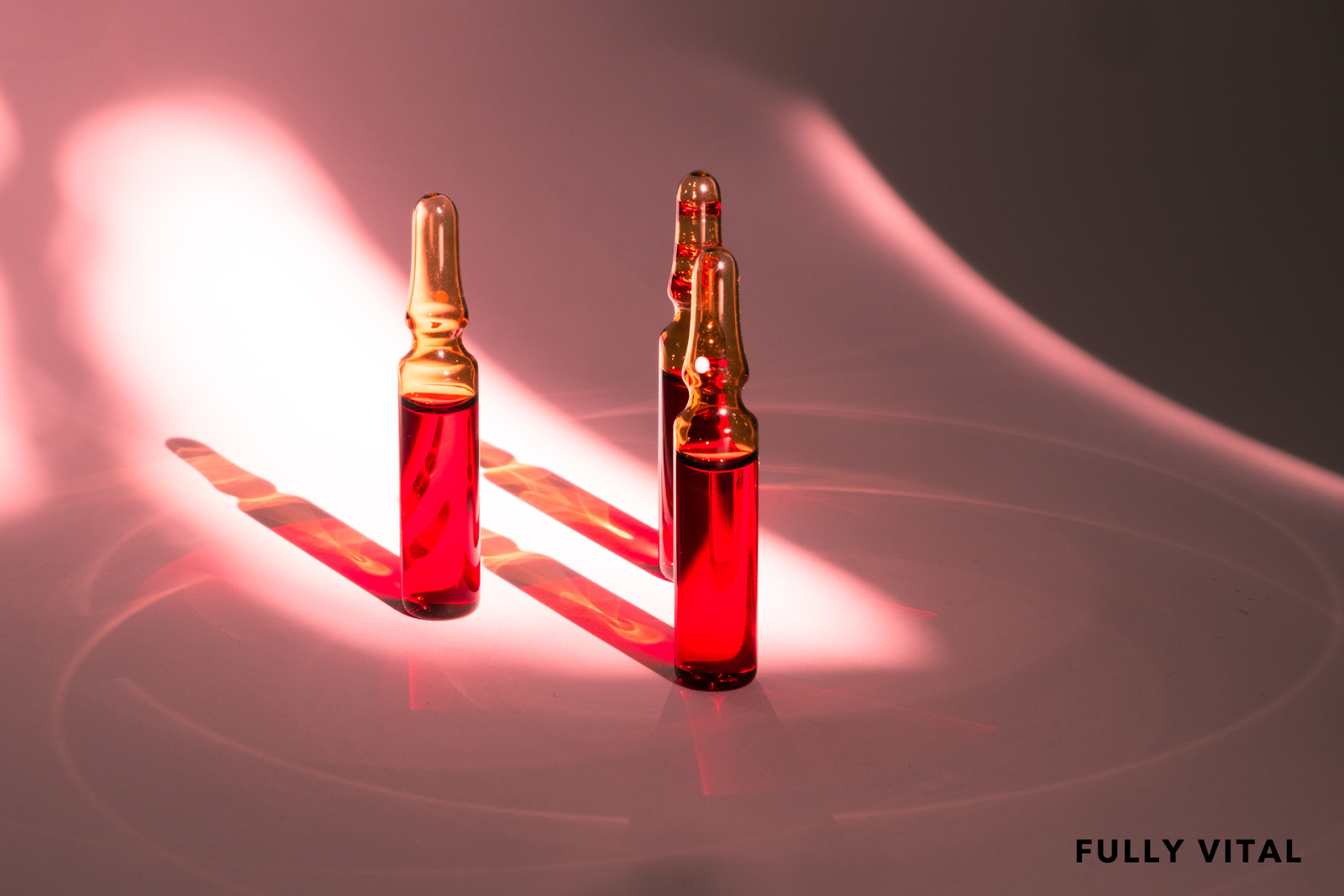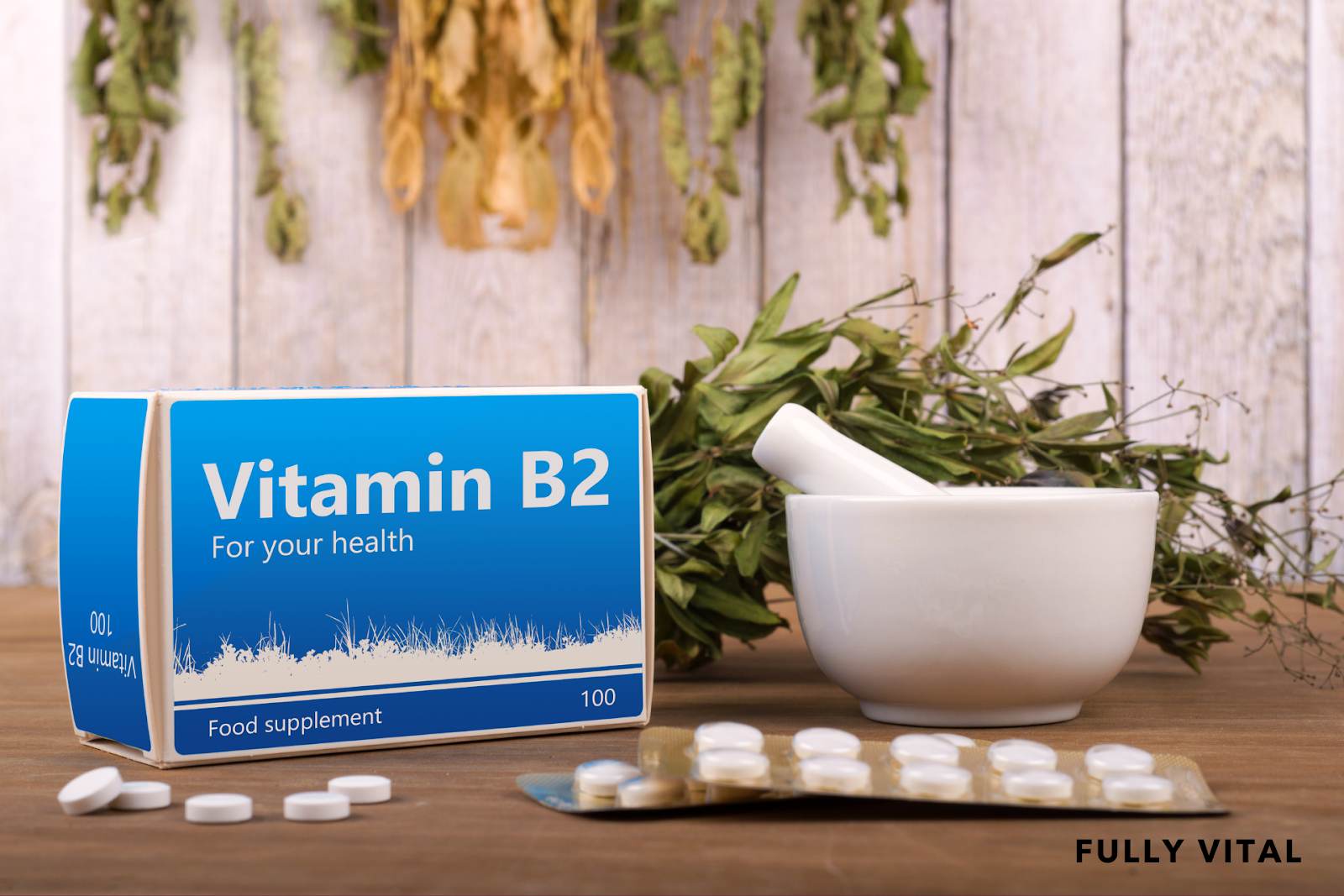
L-lysine: Essential Amino Acid for Hair Perfection
Why are Amino Acids Critical for Hair Health?
Amino acids are the building blocks of protein, and since hair is primarily composed of a protein called keratin, these nutrients are indispensable for maintaining strong, healthy hair.
L-lysine, in particular, is a key player in the world of hair care, but it's not just another supplement on the shelf; it carries unique benefits for your locks.
The Role of L-lysine in Hair Care This essential amino acid is known to play several roles in the body, including the absorption of other vital nutrients that are crucial for hair growth and retention.
While lesser-known than other supplements, L-lysine could be the unsung hero in your hair care routine, helping to keep your mane thicker, fuller, and more resilient against damage.

I LOVE MY HAIR NOW
FullyVital hair serum and hair vitamins made tremendous improvements in my hair. I truly love my hair now.
Shop Hair ProductsWhat Exactly is L-lysine?
L-lysine is an essential amino acid, one of the building blocks your body needs to produce proteins.
It's labeled “essential” because your body can’t manufacture it; it must come from your diet or supplementation.
Why is L-lysine Important for Our Bodies?
Besides its role in protein synthesis, L-lysine is crucial for several bodily functions, such as immune system support and collagen production.
It's also believed to help the body absorb calcium and produce energy from fatty acids.
How Does L-lysine Function Biologically?
In the biological orchestra, L-lysine plays a multifaceted role.
It takes part in muscle repair, enzyme production, and even helps combat stress.
For hair, it’s also thought to play a role in preventing an excessive shed and aiding in the regeneration of hair follicles.
What Benefits Does L-lysine Offer for Hair?
L-lysine benefits hair by contributing to the production of collagen—a vital part of hair's structure—and by helping to absorb iron, a key nutrient for hair growth.1
A lack of L-lysine can lead to hair loss, but adequate levels can help lead to a full, healthy head of hair.
What Happens When You're Low on L-lysine?
Can You Identify Signs of L-lysine Deficiency?
Hair loss is a potential sign of L-lysine deficiency, along with general fatigue, nausea, dizziness, and muscle weakness.
Since L-lysine is not produced by the body, these signs can signal that intake is insufficient from diet alone.
How Does L-lysine Deficiency Impact Hair Quality?
Without sufficient L-lysine, hair may become brittle, slow to grow, or begin to thin out more than usual.
It can also result in a lackluster appearance due to lessened collagen production.
What Are the Long-Term Effects of Low L-lysine Levels on Hair?
Consistently low levels of L-lysine can lead to chronic hair problems, such as an increase in hair shedding or breakage, leaving your hair looking thinner and less vibrant over time.2
Where Can You Find L-lysine in Your Diet?
Which Foods are Rich in L-lysine?
Dietary sources of L-lysine include meat, fish, dairy, eggs, soy products, and legumes.
For those following a plant-based diet, quinoa and pumpkin seeds are also good sources.
What Daily Habits Contribute to a L-lysine-Rich Diet?
Incorporating a variety of L-lysine-rich foods into your meals is key.
Balancing your diet with a mix of proteins and plant-based options can help ensure you're meeting your L-lysine needs.
Should You Consider L-lysine Supplementation?
L-lysine supplementation may be necessary for individuals who are unable to get enough from their diet alone—this could include vegans, vegetarians, or those with certain food allergies or absorption issues.
What’s the Recommended Dosage for Hair Health?
The recommended daily dose of L-lysine varies based on dietary intake and individual needs, but for hair health, a general guideline for adults is between 1,000 and 3,000 mg per day.
Always consult with a healthcare provider before starting any supplement regimen.
What Precautions Should You Take with L-lysine Supplements?
While L-lysine is generally safe, high doses can cause gastrointestinal issues or interact with certain medications.
Adhering to recommended dosages and seeking advice from a healthcare provider can mitigate these risks.

How Can You Incorporate L-lysine into Your Hair Care Routine?
What Practical Tips Can Enhance Hair Care with L-lysine?
To maximize the benefits of L-lysine for your hair, consider balancing your diet to include L-lysine-rich foods and possibly a supplement if needed.
In addition, maintain a consistent hair care routine that keeps the scalp clean and hair nourished.
Can Other Nutrients Work in Tandem with L-lysine for Better Results?
Yes, nutrients like iron, vitamin C, and zinc can work synergistically with L-lysine to improve hair health.
For instance, vitamin C can boost collagen production, further strengthened by the presence of L-lysine.
Are There Unique Hair Care Practices for L-lysine Absorption?
While L-lysine absorption mainly occurs through digestion, ensuring overall scalp health can facilitate the best possible environment for hair growth and retention, making the most of L-lysine and other nutrients.
Can Science Validate L-lysine's Benefits for Hair?
What Do Key Studies Say About L-lysine and Hair?
Research indicates that L-lysine may help to reduce hair loss and, when paired with other nutrients, it can aid in promoting hair growth, particularly in people with l-lysine-deficient diets.3
How Do We Differentiate Between Myths and Facts?
By reviewing scientific studies and medical research, we can understand the real benefits of L-lysine and debunk any unsupported claims.
Transparency in reporting research and outcomes is key for separating fact from fiction.
Are There Any Risks with L-lysine Use?
What Potential Side Effects Should You Be Aware Of?
Over-supplementation of L-lysine can lead to digestive issues, abdominal pain, and could potentially interfere with certain cholesterol medications.
It's essential to stay within recommended guidelines and consult with a healthcare provider.
How Can You Monitor and Manage Adverse Reactions?
If you experience side effects, it's advisable to reevaluate your L-lysine intake and speak with a healthcare professional.
Adjusting dosage or integrating nutrients through diet may be necessary to mitigate adverse effects.
When is it Time to Consult a Healthcare Professional?
You should consult a professional if you’re considering L-lysine supplements, if you notice signs of deficiency or adverse reactions, or if you have underlying health conditions that could be complicated by supplementation.

Explore the Efficacy of Fully Vital Hair Growth SolutionsAt Fully Vital, we recognize the challenges and worries associated with the aging of your hair. To address this, we have created a line of hair growth solutions designed to halt and reverse the aging process, providing you with stronger, healthier locks. Below are some key features and advantages of our offerings: Scientifically Validated Formulations: Our products are underpinned by scientific research, tailored to specifically combat the aging of hair and foster growth and resilience. Proven Effectiveness: Users of our solutions have reported significant enhancements in hair thickness and overall health, resulting in heightened confidence and satisfaction. Natural Components: We utilize thoughtfully chosen natural ingredients that are gentle on the scalp and hair, ensuring the safety and effectiveness of our products for all hair types. User-Friendly: Our solutions are uncomplicated and easy to incorporate into your daily hair care routine, facilitating consistent use for optimal results. Customer Contentment: We take pride in the positive feedback and testimonials from our contented customers, attesting to the transformative effects of our products. With Fully Vital, you can reclaim control over the aging of your hair and attain the luscious, vibrant locks you deserve. Embrace the potential of our hair growth solutions and unlock the true vitality of your hair. |
Final Thoughts On L-lysine
In the pursuit of hair perfection, understanding the significance of L-lysine is like discovering a hidden gem in the realm of hair care.
This essential amino acid offers more than just hope—it presents a scientifically-backed avenue to potentially bolster the health of your hair from the inside out.
From fostering collagen production to enhancing the absorption of other vital nutrients, L-lysine stands as a testament to the power of combining nature with science for the benefit of our bodies.
However, it's not a magic pill or a one-size-fits-all solution.
It requires a balanced diet, appropriate supplementation as necessary, and dedicated hair care routines to achieve the best results.
Remember, the health of your hair is a reflection of your overall well-being, and nurturing it requires a holistic approach.
Before considering the addition of L-lysine to your regimen, consult with a healthcare professional to tailor a plan that fits your specific needs.
The journey to healthier, more vibrant hair may well start with this single step—getting acquainted with L-lysine and what it can do for you.
Check out our recent blogs:
- How Long Does It Take For Hair To Grow Back? Patience Is Key
- Biotin For Hair Loss: Exploring The Benefits And Effectiveness
- Say Goodbye To Hair Damage: Proven Methods For Effective Repair
Frequently Asked Questions About L-lysine
Can l-lysine help with hair loss due to aging?
While L-lysine cannot reverse aging, it can potentially help strengthen hair and improve its quality, which may combat some of the hair loss associated with aging.
Is l-lysine helpful for certain hair types or textures?
L-lysine benefits all hair types by supporting the structural proteins of hair, but individual results can vary depending on one’s overall health and hair care practices.
Can l-lysine improve skin health in addition to hair?
Yes, due to its role in collagen production, L-lysine may also contribute to improved skin health and elasticity.
Does l-lysine work better in conjunction with other supplements?
L-lysine can work synergistically with vitamins and minerals like vitamin C, zinc, and iron, enhancing their absorption and bolstering their benefits for hair health.
How long does it take to see results from l-lysine supplementation?
Results can vary, but with consistent supplementation, improvements in hair health might be observed over several months as hair grows and renews.
Can excess l-lysine lead to hair problems?
Excessive L-lysine intake is not typically linked to hair problems but can cause other health issues.
Moderation and adherence to recommended guidelines are essential.
Should children or adolescents take l-lysine for hair growth?
Children and adolescents should not take L-lysine supplements without medical supervision as their nutritional needs and tolerances differ from adults.
Can l-lysine prevent graying of hair?
There is no evidence to suggest that L-lysine prevents graying, as hair color is primarily determined by genetics and environmental factors, not amino acid consumption.
Do l-lysine supplements interact with other medications?
L-lysine can interact with certain medications, including calcium supplements and some antibiotics.
Consult with a healthcare provider for personalized advice.
How does l-lysine compare to other hair care supplements?
L-lysine is unique in that it aids in collagen production and nutrient absorption.
However, like any supplement, its effectiveness can vary when compared to other products designed for hair care.
Sources:
- Guo, E. L., & Katta, R. (2017). Diet and hair loss: effects of nutrient deficiency and supplement use. Dermatology Practical & Conceptual, 7(1), 1–10. https://doi.org/10.5826/dpc.0701a01
- Rushton, D. H. (2002). Nutritional factors and hair loss. Clinical and Experimental Dermatology, 27(5), 396–404. https://doi.org/10.1046/j.1365-2230.2002.01076.x
- Jansen, G. R. (1962). Lysine in Human Nutrition. The Journal of Nutrition, 76(suppl_2), 1–35. https://doi.org/10.1093/jn/76.2_suppl.1








